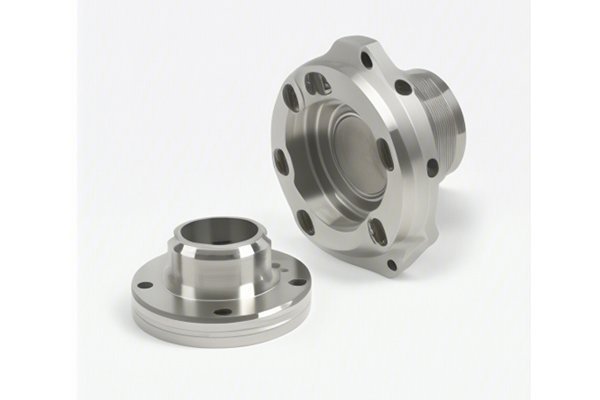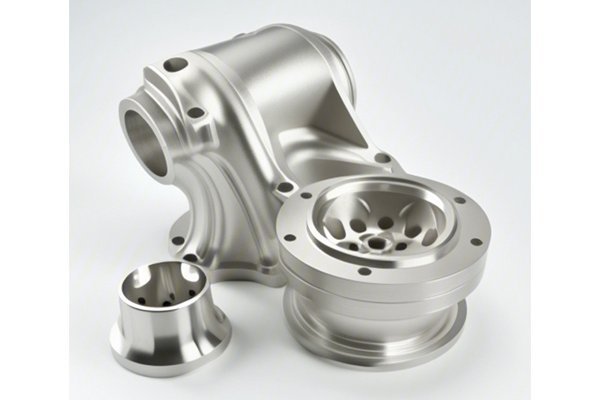Opening:
Did you know that a staggering 70% of consumers in 2023 indicated a preference for brands that respond quickly to their needs? In industries where precision and speed are paramount, such as CNC processing, understanding customer requirements and adapting swiftly can dramatically enhance satisfaction and loyalty.
The Importance of Rapid Response in CNC Processing
In the fast-paced landscape of CNC (Computer Numerical Control) processing, customers are no longer willing to wait days or weeks for their specialized orders. The demand for speed and customization has increased dramatically. This shift requires CNC processing factories to rethink and refine their operational strategies to ensure they can meet and exceed customer expectations.
But how can CNC processing factories truly enhance customer satisfaction through an effective rapid response to changing needs? Let’s explore strategies, technologies, and methodologies essential for optimizing responsiveness while maintaining exceptional quality in CNC manufacturing.
Understanding Customer Needs
Before implementing strategies to improve response times, CNC factories must start by thoroughly understanding customer needs. This understanding can be achieved through several key methods:
Regularly engaging in feedback loops by conducting surveys can reveal insights about your customers’ current and emerging needs. The feedback can guide critical operational changes.
Keeping up with industry trends can inform the CNC factories about what consumers are anticipating or needing in terms of customizations, materials, or processing techniques.
Building a channel for ongoing communication with customers can help clarify their needs in real time. It positions the factory as a responsive partner rather than a mere supplier.
Implementing Technological Solutions
Once customer needs are clear, CNC factories must leverage technology to enhance their response capabilities. Here are some of the most impactful technological solutions that can foster rapid response and adaptability:
Investing in state-of-the-art CNC machines that can operate with minimal human intervention allows for greater efficiency. These machines offer improved speed, precision, and flexibility in processing tasks, which consequently hastens response times.
The Internet of Things (IoT) can further transform CNC factories by connecting machines to a central monitoring system. Real-time analytics can provide alerts on equipment health, operational efficiency, and production bottlenecks, allowing for immediate corrective action.
Optimizing Workforce Management
While technology plays a significant role in enhancing response times, a well-trained and versatile workforce is indispensable. Here are strategies to optimize workforce management:

Cross-training staff ensures that multiple employees can operate various machines and processes. In a dynamic environment where orders change rapidly, this flexibility allows for speedy adaptation to new tasks or repairs.
Encouraging team members to take ownership of their roles fosters a sense of responsibility and enhances engagement. Satisfied and engaged employees tend to perform better, contributing to improved customer service.
Implementing lean principles such as 5S (Sort, Set in order, Shine, Standardize, Sustain) can help create a more organized and efficient workplace. Reducing waste in processes and minimizing downtime allows for faster turnarounds.
Enhancing Supply Chain Relationships
Strong supply chain relationships are vital for maintaining responsiveness. Although many CNC processing factories manage various components in-house, building robust partnerships with external suppliers ensures that they can source materials and components promptly when customer demands shift.
Utilizing a vendor management system can track supplier performance and streamline communication, ensuring that you can quickly secure materials as they are needed.
Adopting a JIT inventory system can reduce excess stock while ensuring that materials arrive as required. This responsiveness is critical to meeting fluctuating customer needs without overextending financial resources.
Whenever possible, sourcing materials locally can lead to faster delivery times. CNC factories should evaluate their supply chains and prefer regional suppliers to shorten lead times.
Continuous Improvement and Adaptation
The journey to enhancing customer satisfaction through rapid responsiveness does not end with initial changes; continuous improvement is crucial in this highly competitive industry.
Adopting the Kaizen (continuous improvement) methodology cultivates an environment where employees consistently seek ways to enhance processes. This mindset can lead to incremental enhancements in workflow and responsiveness.
Keeping employees up to date with the latest technologies and machining techniques is essential. Regular training ensures that the workforce remains agile and equipped to adapt to new challenges.
Establishing key performance indicators (KPIs) related to order cycle times, responsiveness, and customer satisfaction can keep the factory focused on rapid response as a continuous goal.
In summary, CNC processing factories can significantly enhance customer satisfaction through effective rapid response strategies. By understanding customer needs, leveraging technological advancements, optimizing workforce management, and maintaining strong supplier relationships, factories can swiftly adapt to changes and deliver superior service.
As the landscape of CNC processing continues to evolve, the emphasis on quick responses will only grow stronger. In a world where consumers demand speed and quality, investing in these strategies does not merely benefit factories; it fortifies long-lasting relationships with customers. Embracing this mindset is imperative for staying competitive and relevant in the industry.
As you reflect on this blog, consider how your operations could adapt to better meet customer demands. The future of CNC processing is not only about cutting metal more precisely – it’s about creating a responsive environment where customer satisfaction remains at the forefront.






